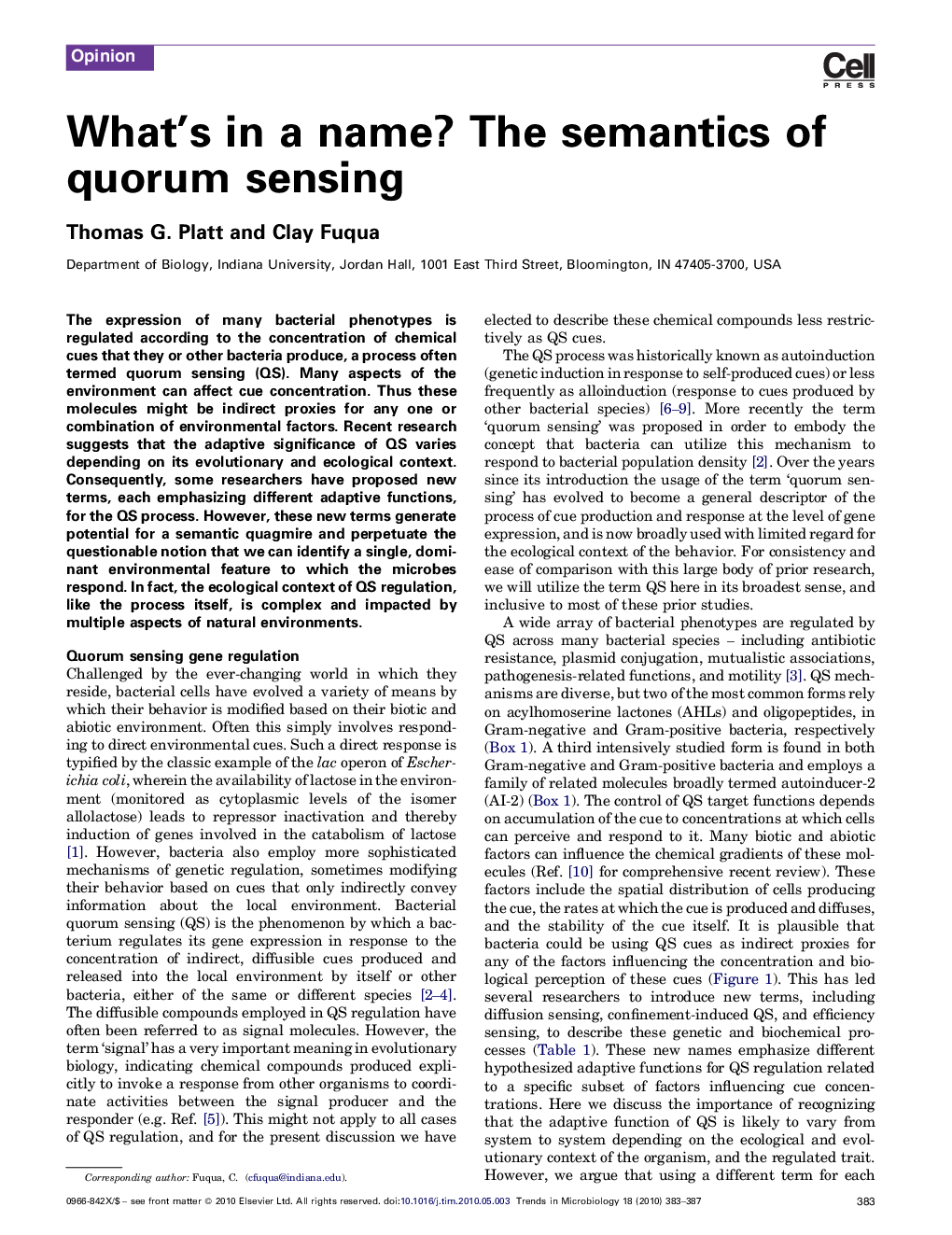| Article ID | Journal | Published Year | Pages | File Type |
|---|---|---|---|---|
| 3422215 | Trends in Microbiology | 2010 | 5 Pages |
The expression of many bacterial phenotypes is regulated according to the concentration of chemical cues that they or other bacteria produce, a process often termed quorum sensing (QS). Many aspects of the environment can affect cue concentration. Thus these molecules might be indirect proxies for any one or combination of environmental factors. Recent research suggests that the adaptive significance of QS varies depending on its evolutionary and ecological context. Consequently, some researchers have proposed new terms, each emphasizing different adaptive functions, for the QS process. However, these new terms generate potential for a semantic quagmire and perpetuate the questionable notion that we can identify a single, dominant environmental feature to which the microbes respond. In fact, the ecological context of QS regulation, like the process itself, is complex and impacted by multiple aspects of natural environments.
